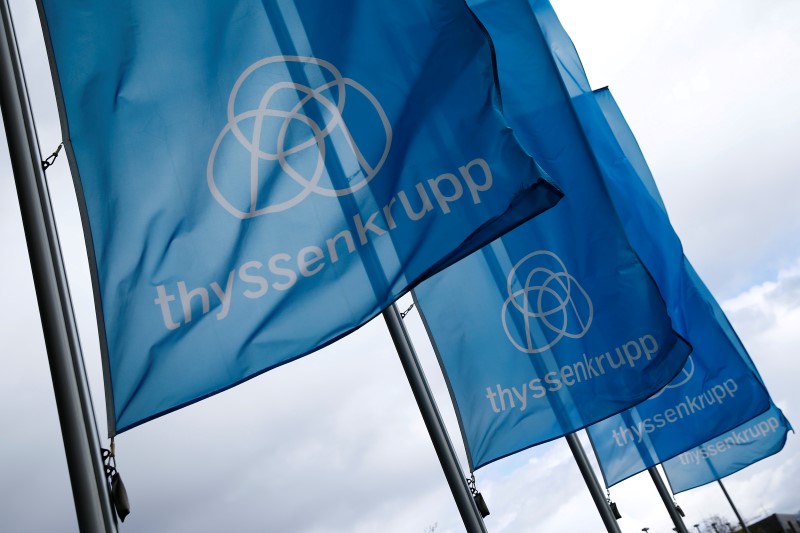Verizon to cut 15,000 jobs amid growing competition pressures - WSJ
Investing.com -- Shares of submarine specialist TKMS jumped in their Frankfurt debut on Monday following its carve-out from Thyssenkrupp AG, reflecting strong investor appetite amid Europe’s expanding defense budgets.
Trading began at €60 a share, valuing the company at roughly €3.8 billion ($4.4 billion), before the stock quickly climbed to €75.01 in early deals.
Ahead of the IPO, Bloomberg Intelligence analysts had estimated the unit’s valuation in a range of €2.7 billion to €4 billion, depending on the multiple applied.
Thyssenkrupp stock fell more than 18% to €9.85 after being adjusted for the spinoff terms. Shareholders of the parent company received one TKMS share for every 20 Thyssenkrupp shares held.
The move is part of CEO Miguel Lopez’s broader strategy to extract value from lagging divisions. Thyssenkrupp has retained a 51% stake, keeping control while releasing capital tied up in the defense arm.
"We need more flexibility ... in light of rising geopolitical tensions," TKMS CEO Oliver Burkhard said shortly before the stock started trading.
Commerzbank, Citi and Deutsche Bank advised on the transaction.
The listing comes as Germany prepares to lift its annual defense budget to over €160 billion by 2029. Defense-related stocks have rallied sharply this year, with the STOXX Europe Aerospace & Defense ETF up 77%.
TKMS is positioned to benefit from a deteriorating security environment that is expected to drive greater demand for submarines, surface vessels and underwater detection systems. In its investor presentation, the company estimated that its addressable market could expand by around 8% to reach €61 billion by 2033.
With a legacy stretching back nearly two centuries, TKMS is the world’s leading producer of non-nuclear submarines, as well as frigates and underwater systems, including mine-countermeasure technology via its Atlas Electronics unit.
The company hosted its first capital markets day last month, outlining margin targets that some investors viewed as lacking ambition compared with peers such as BAE Systems.
